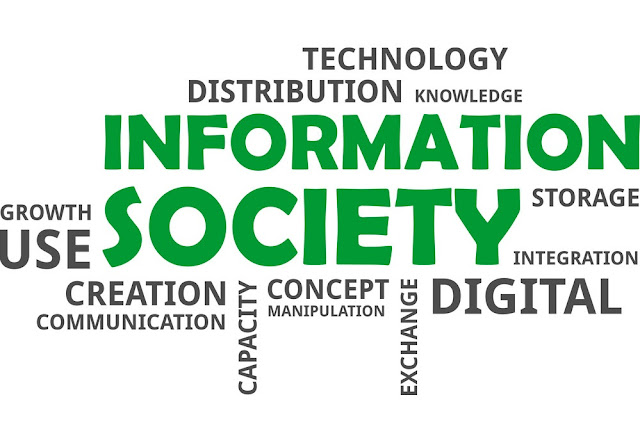An information society is a society where the creation, distribution, use, integration, and manipulation of information is a significant economic, political, and cultural activity. Its main drivers are digital information and communication technologies, which have resulted in an information explosion and are profoundly changing all aspects of social organization, including the economy, education, health, warfare, government, and democracy.
There is currently no universally accepted concept of what exactly can be termed information society and what shall rather not so be termed. Most theoreticians agree that a transformation can be seen that started somewhere between the 1970s and today and is changing the way societies work fundamentally. Information technology goes beyond the internet, and there are discussions about how big the influence of specific media or specific modes of production really is. Frank Webster notes five major types of information that can be used to define information society: technological, economic, occupational, spatial and cultural. According to Webster, the character of information has transformed the way that we live today. How we conduct ourselves centers on theoretical knowledge and information.



Comments
Post a Comment